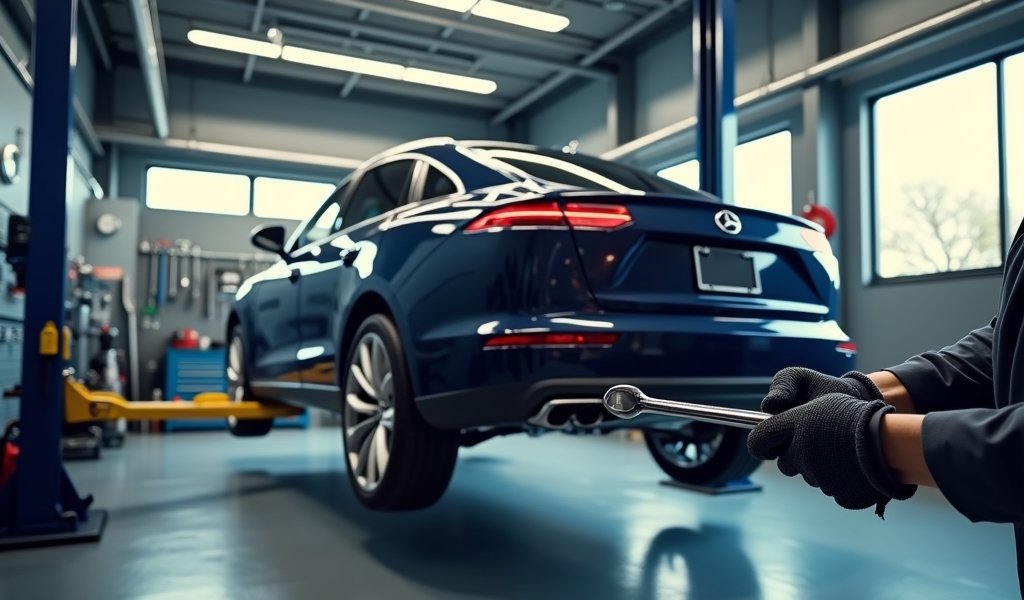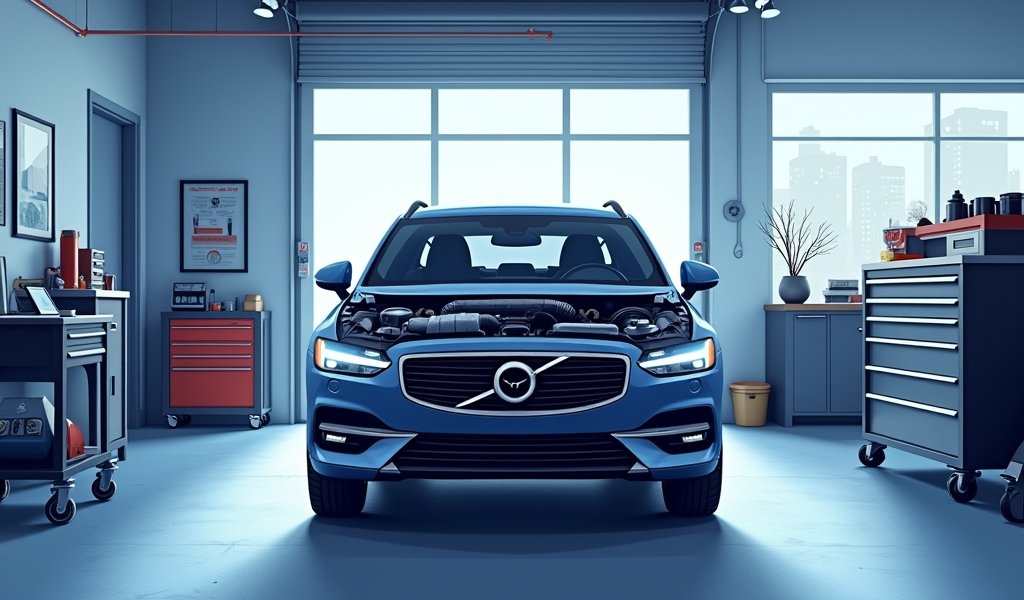Overview
This article provides ten essential tips for finding a reliable certified car mechanic, including verifying credentials, researching reviews, evaluating specialization, comparing pricing, checking warranties, and trusting your instincts. The guide emphasizes that choosing the right mechanic involves considering both technical expertise and communication style, with the goal of establishing a long-term professional relationship for proper vehicle care.
Table of Contents
- Why Certified Mechanics Matter
- Tip 1: Verify Proper Certification and Credentials
- Tip 2: Research Online Reviews and Ratings
- Tip 3: Ask for Personal Recommendations
- Tip 4: Evaluate Specialization and Expertise
- Tip 5: Compare Pricing and Get Written Estimates
- Tip 6: Check Warranty Policies
- Tip 7: Visit the Shop Before Committing
- Tip 8: Evaluate Communication Style
- Tip 9: Consider Convenience Factors
- Tip 10: Trust Your Instincts
- Finding Your Trusted Mechanic: The Road Ahead
- Frequently Asked Questions
Finding a reliable certified car mechanic near me is something many vehicle owners struggle with. After 20 years turning wrenches and diagnosing everything from temperamental transmissions to quirky electrical gremlins, I understand the anxiety you feel when trusting your four-wheeled companion to someone new. Your vehicle represents freedom, convenience, and a significant financial investment—you need someone who treats it with the same care you do.
At Knows Your Car, we’ve helped thousands of drivers connect with trustworthy mechanics who provide honest service at fair prices. Let’s walk through my top 10 professional tips for finding a certified car mechanic who’ll keep your ride running smoothly for years to come.
Why Certified Mechanics Matter
Today’s vehicles are rolling computers with dozens of electronic systems communicating through complex networks. That trusty neighborhood mechanic who fixed your dad’s Chevy might be completely lost under the hood of your modern vehicle without proper training and certification.
Certified mechanics regularly update their knowledge and skills through continuing education. This matters because automotive technology evolves rapidly—what worked five years ago might be completely obsolete today. A certified professional understands these changes and has the tools and knowledge to diagnose and repair modern vehicles correctly the first time.
More importantly, a properly certified mechanic understands safety protocols that protect both you and your vehicle. This becomes especially crucial for repairs involving braking systems, airbag components, or structural elements where improper work could have serious consequences.
Tip 1: Verify Proper Certification and Credentials

The Automotive Service Excellence (ASE) certification is the industry gold standard. Mechanics must pass challenging exams and demonstrate real-world experience to earn these credentials. The familiar blue ASE seal isn’t just a pretty logo—it’s proof that at least one technician at the shop has proven their expertise through rigorous testing.
Look for mechanics with specialized certifications matching your vehicle’s needs. For instance, if your hybrid needs attention, seek someone with hybrid/electric vehicle certification. For European luxury brands, manufacturer-specific training becomes crucial as these vehicles often have unique systems and procedures.
Don’t hesitate to ask for credentials directly. Legitimate professionals proudly display their certifications and are happy to discuss their qualifications. You can even verify ASE credentials through the official ASE website for additional peace of mind.
Ready to find a certified mechanic who specializes in your vehicle’s make and model? Fill out our matching form below, and we’ll connect you with trusted professionals in your area!
Tip 2: Research Online Reviews and Ratings
Online reviews provide valuable insights into real customer experiences. When researching a best auto repair shop near me, don’t just count stars—read what customers actually say about their experiences.
Look for comments that mention:
- How the shop handled unexpected issues
- Whether repairs were completed on time and within quoted prices
- The quality of communication throughout the repair process
- If repairs resolved the problem permanently or required return visits
Pay attention to how the business responds to negative reviews. Professional shops acknowledge concerns respectfully and offer solutions, while defensive or dismissive responses often indicate poor customer service.
Remember that even exceptional shops occasionally receive negative reviews—sometimes from customers with unrealistic expectations. Look for overall patterns rather than focusing on isolated complaints.
Tip 3: Ask for Personal Recommendations
Despite our digital world, word-of-mouth recommendations remain incredibly valuable. Friends, family, coworkers, and neighbors who’ve had positive experiences with local mechanics can provide trusted referrals based on real experiences.
When asking for recommendations, get specific with questions like:
- How long have they used this mechanic?
- Have repairs lasted as expected, or did issues return?
- Did the mechanic explain problems clearly without unnecessary technical jargon?
- Were there ever unexpected price increases after work began?
- Would they trust this shop with major repairs, not just routine maintenance?
Social media can amplify your search—a quick post asking for local mechanic recommendations often yields surprising connections and valuable insights from your extended network.
Tip 4: Evaluate Specialization and Expertise
All vehicles aren’t created equal, and neither are mechanics. A technician who’s brilliant with American trucks might be completely lost working on a German luxury sedan. When searching for a car repair near me, matching your vehicle to the right expertise matters.
For complex or specialized vehicles, consider these options:
- Dealership service departments (especially for warranty work or specialized systems)
- Independent shops specializing in your specific make
- ASE-certified mechanics with manufacturer-specific training
For mainstream vehicles needing routine maintenance, many general repair shops provide excellent service at competitive prices. The key is matching your specific needs with appropriate expertise.
According to Consumer Reports, independent shops often score higher in customer satisfaction than dealerships while typically charging lower rates for similar work.
Tip 5: Compare Pricing and Get Written Estimates

When it comes to car repairs, the cheapest quote rarely represents the best value. Quality parts, thorough diagnostics, and proper repair procedures necessarily cost more than quick fixes that might leave you stranded later.
Always get written estimates before authorizing work. A professional estimate should include:
- Detailed breakdown of parts costs
- Labor charges with estimated time required
- Mention of potential additional charges if complications arise
- Specification of OEM (Original Equipment Manufacturer) vs. aftermarket parts
Be wary of estimates significantly lower than others—this often indicates corners being cut with cheap parts or rushed labor. Similarly, unusually high estimates without clear justification deserve scrutiny.
Don’t hesitate to ask about diagnostic fees, especially for complex electronic issues. Most reputable shops charge diagnostic fees but apply them toward repair costs if you proceed with their recommended work.
Check out our expert team at Knows Your Car for pricing guidance specific to your vehicle make and model—just fill out the contact form below for personalized advice!
Tip 6: Check Warranty Policies
A mechanic confident in their work stands behind it with a solid warranty. Industry standard warranties typically range from 12 months/12,000 miles for most repairs, though this can vary based on the type of work performed.
Ask these specific questions about warranty coverage:
- Does it cover both parts and labor if issues recur?
- Are there conditions that might void the warranty?
- How are warranty claims handled if problems arise?
- Is the warranty transferable if you sell the vehicle?
Be wary of shops offering exceptionally long warranties with numerous exclusions in the fine print. A straightforward, reasonable warranty often indicates a shop that takes pride in doing quality work the first time.
According to the Federal Trade Commission, understanding repair warranties before service begins is an essential consumer protection step.
Tip 7: Visit the Shop Before Committing
A shop visit reveals volumes about a mechanic’s professionalism. While some mess is inevitable in a working shop, the general condition of the facility speaks to their attention to detail and organizational skills.
Look for these positive signs during your visit:
- Clean, organized work areas with proper safety equipment
- Modern diagnostic equipment and specialized tools
- Professional front office with clear pricing and policies
- Vehicles in various stages of repair (indicating a healthy business)
- Certifications prominently displayed
During your visit, observe how staff interact with other customers. Are they patient with questions? Do they take time to explain issues clearly? These interactions typically reflect how you’ll be treated as well.
Tip 8: Evaluate Communication Style
A truly exceptional mechanic isn’t just technically proficient—they’re also an excellent communicator. They explain issues in terms you understand without talking down to you or drowning you in unnecessary jargon.
The best mechanics educate their customers, helping them understand:
- What’s happening with their vehicle
- Why certain repairs are necessary now
- Which services can safely wait
- How preventive maintenance can avoid costly future repairs
Be wary of mechanics who seem annoyed by questions, provide vague explanations, or try to intimidate you with technical language. These communication issues rarely improve once they have your business.
Good shops often provide visual aids—showing you worn parts, providing digital inspection reports with photos, or using diagrams to explain complex systems in understandable terms.
Tip 9: Consider Convenience Factors
Even the most skilled mechanic might not be practical if their location or hours don’t fit your lifestyle. Consider these convenience factors when making your choice:
- Location relative to your home or workplace
- Business hours that accommodate your schedule
- Availability of loaner vehicles or shuttle service
- Digital scheduling and communication options
- Emergency or after-hours service availability
Many quality shops now offer conveniences like online scheduling, text updates with repair photos, digital payment options, and after-hours dropoff/pickup. These services can transform a potentially stressful repair experience into a manageable part of your busy life.
Remember that some inconvenience might be worth accepting for exceptional service quality, especially for complex or specialized repairs where expertise is crucial.
Tip 10: Trust Your Instincts
After considering all the practical factors, don’t underestimate the importance of your gut feeling. You should feel comfortable with and confident in the person responsible for your vehicle’s care.
The best mechanic-customer relationships develop over time, built on mutual respect and trust. Your mechanic should view you as a long-term client whose safety and satisfaction are priorities, not just as a source of quick revenue.
If something feels off despite positive reviews or recommendations, it’s perfectly acceptable to continue your search. The right mechanic will:
- Listen more than they talk
- Ask clarifying questions about your concerns
- Explain options without pressuring you
- Respect your decisions about timing and budget
This relationship is important—you’re entrusting this person with your safety, mobility, and a significant financial asset. The right connection will provide peace of mind that’s worth the effort of a thorough search.
Finding Your Trusted Mechanic: The Road Ahead
Finding a certified car mechanic near me who checks all these boxes takes some effort, but the payoff is tremendous: reliable service, fair pricing, and the peace of mind that comes with knowing your vehicle is in capable hands. Remember that combining these tips provides the most comprehensive evaluation—no single factor should determine your choice.
Building a relationship with a trustworthy mechanic isn’t just about solving today’s problem—it’s about establishing a partnership that will keep your vehicle running smoothly for years to come. A good mechanic becomes a valuable advisor, helping you make informed decisions about maintenance timing, repair priorities, and even when it might be time to consider a different vehicle.
At Knows Your Car, we’re passionate about connecting drivers with certified professionals who provide honest, quality service. Don’t leave your vehicle’s care to chance—speak with our experts today about finding the perfect mechanic match for your specific needs!
Frequently Asked Questions
What’s the difference between ASE certification and manufacturer certification?
ASE certification is a general industry credential showing proficiency in specific automotive systems through standardized testing. Manufacturer certification involves brand-specific training directly from companies like Toyota or BMW, covering their proprietary systems and repair procedures.
How much more should I expect to pay at a certified shop versus an uncertified mechanic?
Certified shops typically charge 15-30% more than uncertified mechanics, reflecting their investment in training, equipment, and quality parts. This premium often translates to more accurate diagnosis, proper repairs, and fewer return visits.
Can I trust mobile mechanics who come to my home?
Reputable mobile mechanics with proper certification can provide convenient, quality service for many basic repairs and maintenance tasks. Verify their credentials, insurance, and reviews just as you would with a traditional shop.
Should I go to the dealership or an independent shop for repairs?
Dealerships excel with warranty work, complex electronics, and recalls but typically charge premium rates. Independent certified shops often provide comparable quality for routine maintenance and most repairs at lower prices with more personalized service.
How often should I have my vehicle inspected by a professional mechanic?
Most vehicles benefit from professional inspection every 6 months or with seasonal changes, beyond regular maintenance intervals. These preventive checks often catch developing issues before they become expensive emergencies or safety concerns.

